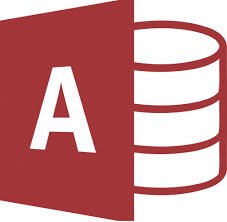
If you’re searching for a more flexible data management system, a database might be just the salvation you’re looking for and Microsoft Access provides an excellent option. With Access you will experience new interface with different look and feel. It has got sleeker look and it has more colors to make it more modern style, which makes Access still relevant now and beyond.
You can not only save the document which you can access anywhere but at the same time you can collaborate it with other people.

Features of Microsoft Access
Access 2013 has changed the tabs of ribbons and made it capitalized which was not there before.
Also if you have not worked with SkyDrive before that’s something which is going to be new for you. Want to explore this?
So when you are trying to open any new or existing document you don’t only have a option of choosing it from Recent but also you can also select it from SkyDrive.
After entering your account details it enters into your SkyDrive and then you can browse your database the same way as you browse in windows explorer. Like downloading we can also upload our local database to the SkyDrive.
Access 2013 has moved towards the Cloud and can now produce Web Apps which can be accessed through a browser.
There’s a quantity of Wizard help available in constructing these, so you’re not working from the sketch up when constructing one. Navigation and different views are pre-constructed, as long as the Web App you’re after can be based on one of the database templates provided.
Here are the top features you should explore in Access .
- Using Templates in Access
- Apps in Access
- A Focus on the Web: Office 365, SharePoint, and Access
- SQL Server: Behind the Scenes of Access
If you would like to learn more about these new features in Microsoft Access, or would like to attend the Microsoft Access Training, do contact us at Intellisoft Systems.
Check out if you are really Microsoft Office Proficient.
What are the Benefits of Learning Microsoft Access
Learning Microsoft Access offers a variety of benefits for individuals and professionals who work with databases, data management, and data analysis. Here are some key advantages of learning Microsoft Access:
1. Efficient Data Management: Microsoft Access enables you to organize and manage large amounts of data in a structured manner. You can create tables, relationships, and queries that help you maintain data integrity and prevent redundancy.
2. User-Friendly Interface: Access features an intuitive interface with a graphical design view that makes it accessible to users without extensive programming experience. This allows you to design and manage databases with ease.
3. Customized Data Entry Forms: You can design custom data entry forms in Access, tailored to your specific needs. This streamlines data entry processes and ensures consistent and accurate data input.
4. Structured Query Language (SQL) Integration: Access allows you to use SQL for more advanced querying and data manipulation. This skill is transferable to other relational database management systems (RDBMS) as well.
5. Querying and Reporting: Access offers powerful querying capabilities, allowing you to extract specific data subsets, perform calculations, and create meaningful reports based on your data.
6. Data Analysis and Insights: Learning Access empowers you to analyze data by creating complex queries, running aggregate functions, and generating summary reports, helping you derive valuable insights.
7. Data Validation and Integrity: Access enables you to implement data validation rules and constraints to ensure that your data is accurate, consistent, and conforms to specified criteria.
8. Data Security: Access provides options for securing your databases by setting permissions and user roles, allowing you to control who can view, edit, or manipulate your data.
9. Integration with Other Microsoft Office Apps: Access seamlessly integrates with other Microsoft Office applications, such as Excel and Word, allowing you to import and export data and generate reports in familiar formats.
10. Career Opportunities: Proficiency in Access is a valuable skill sought after by employers across various industries. It can open doors to positions related to data analysis, data management, and database administration.
11. Small Business Solutions: Access is often used by small businesses to create customized databases for inventory management, customer tracking, project management, and more.
12. Learning Transferable Skills: Learning Access equips you with fundamental database design and management skills that can be applied to other relational databases like MySQL, PostgreSQL, or Oracle.
Mastering Microsoft Access offers a range of benefits that can enhance your data management capabilities, improve efficiency, and provide you with valuable skills for various career paths.
Whether you’re working with data as part of your job or simply looking to gain new skills, mastering Microsoft Access can be a valuable investment of your time and effort.
Who Uses Microsoft Access These Days?
Microsoft Access is used by a wide range of individuals, professionals, and organizations for various purposes related to data management, reporting, and analysis. Here are some examples of who uses Microsoft Access:
1. Small Businesses and Startups: Small businesses and startups often use Microsoft Access to create custom databases for tasks such as inventory management, customer relationship management (CRM), order tracking, and project management.
2. Data Analysts and Researchers: Data analysts and researchers use Access to organize and analyze data for research projects, surveys, and data-driven decision-making. They can create queries, run calculations, and generate reports to extract insights from their data.
3. Administrative Professionals: Administrative staff use Access to manage information such as employee records, event schedules, contact lists, and resource allocation. Custom databases can help streamline administrative tasks.
4. Educators and Students: Access can be used in educational settings for teaching and learning database concepts. Students may learn how to create databases, design forms, and perform basic data analysis.
5. Nonprofit Organizations: Nonprofits use Access to track donations, manage volunteer information, and create reports for stakeholders. Custom databases help them efficiently manage their operations.
6. Project Managers: Project managers can use Access to create databases for tracking project progress, tasks, timelines, and resources. This aids in organizing and overseeing complex projects.
7. Marketing and Sales Professionals: Marketing and sales teams use Access to manage customer data, track sales leads, analyze marketing campaigns, and generate reports on sales performance.
8. Human Resources Departments: HR departments use Access to manage employee data, track performance reviews, monitor training programs, and generate reports for compliance and analysis.
9. Government Agencies: Government agencies utilize Access to manage various data, such as public records, permits, licenses, and citizen information. Custom databases help streamline operations.
10. Consultants and Freelancers: Independent consultants and freelancers might use Access to track client information, project details, expenses, and generate invoices.
11. Research Institutions: Research institutions and academic organizations use Access for managing data related to ongoing research projects, experiments, and academic studies.
12. Event Planners: Event planners use Access to manage event details, guest lists, RSVPs, and other logistical aspects of event planning.
13. Health and Medical Facilities: Medical practices and healthcare facilities can use Access to manage patient records, appointments, billing, and other administrative tasks.
14. Real Estate Agents: Real estate agents might use Access to track property listings, client preferences, transaction history, and generate property reports.
These are just a few examples of the diverse range of professionals and organizations that use Microsoft Access to manage, analyze, and report on their data.
Access provides a user-friendly interface for creating custom databases that cater to specific needs and tasks, making it a versatile tool for a variety of industries and roles.
Why Should You Join Intellisoft For Your Access Course Training?
Here are some compelling reasons why you should consider Intellisoft Systems’ Microsoft Access training courses as your top choice and why you should strongly consider joining these courses:
- Expertise and Experience: Intellisoft Systems has a proven track record of delivering high-quality training programs. With years of experience in the industry, their instructors are experts in their field and have a deep understanding of Microsoft Access.
- Comprehensive Curriculum: The Microsoft Access training courses at Intellisoft Systems are designed to provide you with a comprehensive understanding of Access. From database design fundamentals to advanced query and reporting techniques, you’ll cover all aspects needed to become proficient in Access.
- Hands-on Learning: Intellisoft Systems places a strong emphasis on hands-on learning. Through practical exercises, real-world projects, and interactive workshops, you’ll gain practical experience that is invaluable for applying your knowledge in real-life scenarios.
- Customized Approach: The training courses are tailored to meet the needs of learners at various skill levels. Whether you’re a beginner or looking to enhance your existing Access skills, Intellisoft Systems ensures that the training aligns with your learning goals.
- Small Class Sizes: With small class sizes, you’ll receive personalized attention from instructors. This facilitates a conducive learning environment where you can ask questions, engage in discussions, and receive individualized guidance.
- Project-Oriented Learning: Intellisoft Systems believes in project-oriented learning, where you’ll work on practical projects that simulate real-world scenarios. This approach helps you build a strong foundation and apply your skills effectively.
- Practical Applications: Access is a powerful tool with numerous applications across various industries. By joining Intellisoft Systems’ courses, you’ll be equipped with skills that are highly relevant and sought after in the job market.
- Networking Opportunities: Enrolling in these courses allows you to connect with fellow learners who share similar interests. Networking opportunities can lead to valuable connections, collaborations, and the exchange of insights.
- Post-Training Support: Intellisoft Systems continues to support you even after the training is complete. You can reach out for clarifications, guidance, and assistance, ensuring that your learning journey is a continuous one.
- Proven Success Stories: Many individuals have successfully completed Intellisoft Systems’ Access training courses and have seen tangible improvements in their skills and career prospects. You could be the next success story.
If you’re looking to master Microsoft Access and unlock its potential for your personal growth or professional advancement, Intellisoft Systems’ Access training courses are your ideal choice.
With their experienced instructors, comprehensive curriculum, hands-on learning, and commitment to your success, these courses provide the perfect platform to enhance your skills and confidently navigate the world of Access.
Don’t miss out on this opportunity to learn from the best – join Intellisoft Systems’ Microsoft Access training courses and take your skills to the next level!